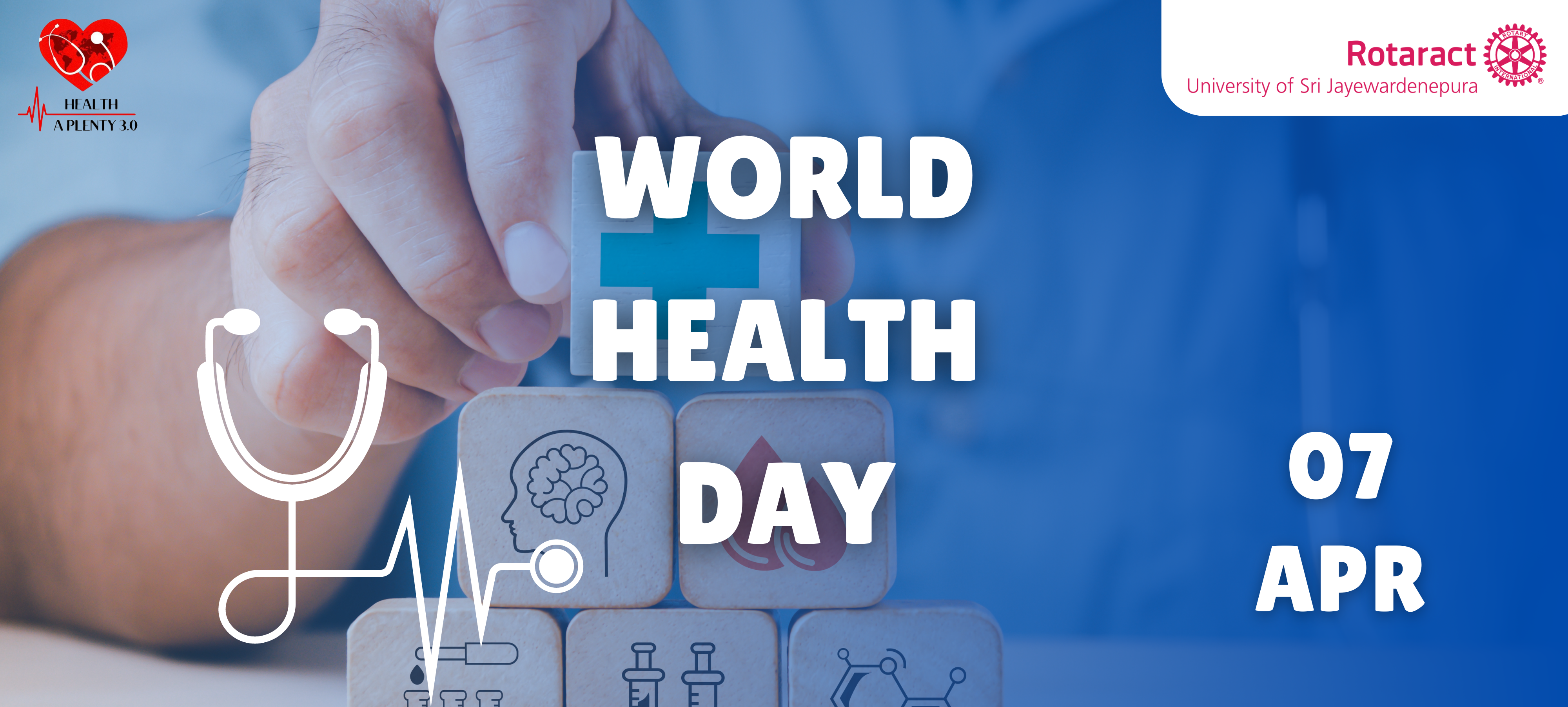World Health Day, celebrated annually on April 7th, marks a significant moment to raise awareness about global health issues and for healthier living. This year’s theme ‘My Health My Right’ emphasises that access to quality health care is a fundamental right. This article dives into the significance of World Health Day, its theme for 2024, and the collective efforts needed to achieve access to healthcare for all.
The inception of World Health Day can be traced back to the First World Health Assembly held in 1948, where the WHO, the specialized agency of the United Nations responsible for international public health, was founded. During this assembly, delegates recognized the importance of promoting global health and acknowledged the need for collective efforts to address health challenges worldwide.
In 1950, the WHO officially designated April 7th as World Health Day, commemorating the anniversary of its establishment. Since then, World Health Day has evolved into a global platform for advocating for health equity, promoting disease prevention, and addressing emerging health threats.From combating infectious diseases to promoting mental health awareness, the themes chosen for World Health Day reflect the evolving health landscape and the pressing challenges faced by communities worldwide.
The theme for World Health Day 2024, “My Health My Right,” signifies the urgent need to address health inequalities and ensure that everyone, regardless of their socio-economic status, has access to quality healthcare services.
Achieving health equity requires a multi-faceted approach that consists of various aspects of society, including education, employment, housing, and social support systems. It involves addressing the root causes of health disparities, such as poverty, discrimination, and lack of access to essential resources.
Health inequalities manifest in different forms, including disparities in access to healthcare services, health outcomes, and exposure to environmental hazards. To build a fairer and healthier world.
Investing in primary healthcare systems is critical to ensuring universal health coverage and addressing the health needs of underserved populations. By strengthening primary care infrastructure and expanding access to essential health services, countries can make significant strides towards achieving health equity.
Additionally, efforts to promote health literacy and empower individuals to make informed decisions about their health can contribute to reducing disparities and improving overall well-being. Education campaigns, community outreach programs, and initiatives aimed at promoting preventive care can play a major role in fostering healthier communities.
Building a fairer and healthier world requires collective action and collaboration across sectors. Governments, civil society organizations, healthcare providers, and the private sector must work together to develop and implement policies that prioritize health equity.
Furthermore, international cooperation and solidarity are essential for addressing global health challenges and ensuring that no one is left behind. Through initiatives such as vaccine equity and health system strengthening, the international community can make tangible progress towards achieving the Sustainable Development Goal of ensuring healthy lives for all.
As we commemorate World Health Day 2024, let us remember our commitment to building a fairer, healthier world for present and future generations. By addressing health inequalities and working towards universal health coverage, we can create a world where everyone has the opportunity tolead a healthy and fulfilling life. Together, let us strive towards a future where health is not just a privilege but a fundamental human right.
Written by: Rtr. Adhithya Seram
Graphic design by: Rtr. Malindi Nanayakkara



0 Comments